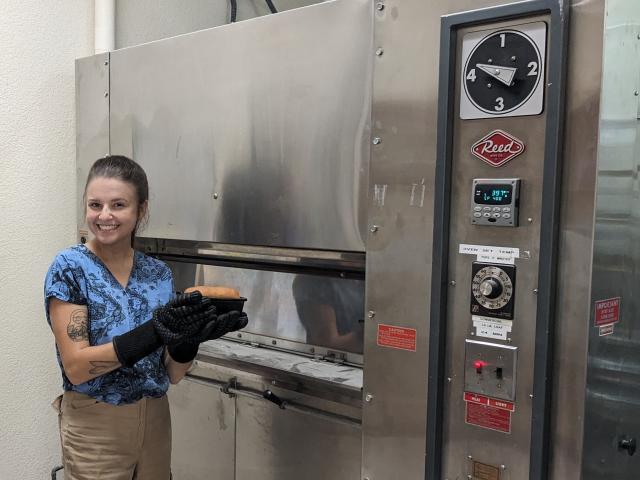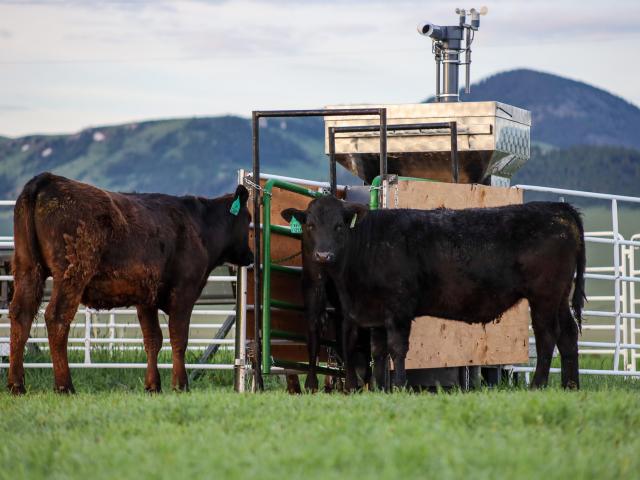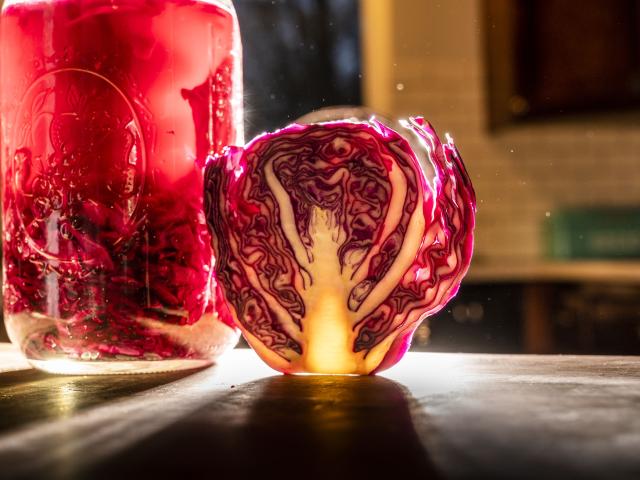UC Davis Delivers
Researchers and faculty in the College of Agricultural and Environmental Sciences have been at the forefront of breakthroughs in agriculture, the environment and human and social sciences.
We’ve made the strawberries you eat longer-lasting and tastier, developed compostable ice cubes to keep your food cool, studied how climate change is affecting bees and pollination, fed millions with drought-resistant rice, protected babies by better understanding gut health, discovered why pristine rivers are rusting and sought to find ways to prevent wildfires.
Federal research dollars are vital to this work and ensuring the world we live in is healthy, safe, prosperous and secure for all.
We’ve made the strawberries you eat longer-lasting and tastier, developed compostable ice cubes to keep your food cool, studied how climate change is affecting bees and pollination, fed millions with drought-resistant rice, protected babies by better understanding gut health, discovered why pristine rivers are rusting and sought to find ways to prevent wildfires.
Federal research dollars are vital to this work and ensuring the world we live in is healthy, safe, prosperous and secure for all.
Critical Research Hangs in the Balance
University of California breakthroughs — from addressing bird flu to measuring water quality to the food on your plate — have saved countless lives worldwide, sparked whole new industries and kept America safer and stronger on the world stage. But now, UC scientists’ ability to move forward faces multiple obstacles.
UC Davis Delivers: Innovation For Your Everyday Life
- What is the role of federal funding?
- Federal research funding exists to serve the public good. Agencies like the NIH, NSF, and USDA invest in research that addresses national priorities—like improving public health, ensuring food safety, advancing clean energy, and protecting ecosystems. These grants support discovery-driven work that benefits everyone, not just private interests, and they help train the next generation of scientists.
- Who pays for research at UC Davis?
- The federal government is by far the largest funder of research at UC Davis, though other entities—the State of California, industry partners, and private foundations—also contribute. For context, in 2023–24 federal agencies provided $441 million, or 42% of all research funding received by the university. That means public tax dollars are the driving force behind many of the discoveries and innovations that benefit all Americans. Read more.
- How are research grants awarded?
- Federal research funding is highly competitive. Researchers submit detailed proposals that are reviewed by expert panels for quality, feasibility, and public impact. Only a fraction of proposals are funded, making grant awards a strong signal of scientific merit and innovation.
- What are “indirect costs”?
- When a research grant is awarded, it covers two things: the work itself—like experiments, data analysis, and salaries—and the essential infrastructure that makes that work possible, including lab space, electricity, IT support, research safety, and administrative help. These are known as “indirect costs.” They aren’t extras—they’re the behind-the-scenes systems every research project relies on. Without support for indirect costs, research simply couldn’t continue at the scale and quality our institutions are known for. Learn more.
- How does research funding impact local jobs and the economy?
- Research funding doesn’t just advance science—it creates jobs. Grants support immediate roles like lab technicians, graduate students, postdocs, and staff, and also fuel local spending through suppliers and service providers. Over time, research drives innovation that leads to new industries, technologies, and economic growth. It’s an investment in people, ideas, and the future economy. Learn more.
- Can endowments replace federal research funding?
- No. While some endowments support research, most are restricted and lack the scale and flexibility of federal research funding. While endowments can supplement research activities, they cannot replace the sustained, large-scale and flexible support needed to carry out complex, long-term projects.
- What about foundations or industry partnerships?
- Foundations and industry partners play an important role in supporting research, often providing seed funding for early-stage ideas, or supporting projects that align with their specific missions. Industry collaborations can help translate research into real-world applications. However, these funding sources are typically limited in scope, duration and flexibility. They complement—but do not replace—the broad, sustained support that federal research funding provides.
- How does research move from idea to impact?
- Basic research seeks to answer fundamental questions about how the world works. It isn’t always aimed at a specific product or solution, but it lays the foundation for future breakthroughs. Applied research builds on that foundation to develop real-world innovations in medicine, technology, agriculture, and more. Both are essential parts of the research continuum—without basic research, applied solutions wouldn’t be possible.
- How do scientific advances happen?
- Every breakthrough we see today—whether it’s a new treatment, technology, or discovery—is built on years of prior research. Science moves forward step by step, with basic research laying the groundwork for applied solutions in healthcare, agriculture, energy, and more. What’s visible to the public is often just the tip of the iceberg. Beneath it are years—or even decades—of foundational work that made it possible.
- How can I support research?
- Your support matters. Advocating for sustained federal investment in science, donating to campus research initiatives, and sharing the importance of scientific discovery with your community are all powerful ways to help.






